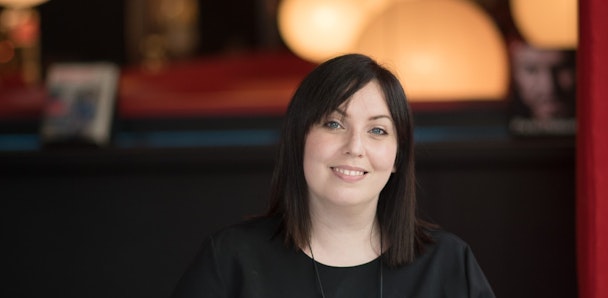Social data professionals must unite around global ethical standards or face wipeout
I first began working with social data in 2007 as an academic researcher. Almost 12 years later, it’s incredible to me that there are still no globally-accepted, cross-sectoral guidelines or governance that we can turn to for advice on ethical best practice.

Dr. Jillian Ney is calling on 'social listeners' around the globe to unite behind a shared set of ethical standards.
Following high-profile social data scandals involving Cambridge Analytica, Crimson Hexagon and Facebook, which have undoubtedly damaged the public profile of ‘social listening’, it’s never been more important for the organisations and professionals working in the industry to come together and safeguard its future.
It’s time for us to establish ‘social intelligence’ as a professional discipline in its own right. That’s why I’m proposing that we create a global steering group – The Digital Intelligence Council – to evaluate where and how social data is being used in order to establish cross-industry governance for the ethical handling of social data.
If we fail to do so, it’s surely just a matter of time until another Cambridge Analytica style scandal comes along, causing governments and the major social networks to severely restrict data access to ethical researchers and potentially damage the social intelligence industry forever.
The ethics of social data
Obviously, I’m not the only one to think about ethics, governance or even best practice. Go to any association from a research, marketing, PR or big data background and there will likely be guidelines and an ethical code that touches upon social data.
However, these codes have usually been based upon pre-existing codes or governance standards. As such, they do not always reflect the nuanced characteristics of social data or how the data can be analysed. Some are even in direct conflict with the terms and conditions of the major social networking sites themselves!
Another major problem is that existing codes of conduct focus too narrowly on their own particular discipline. Some ‘social listeners’ have a research background, others marketing, others PR, business intelligence, analytics or data science, so there are a lot of different standards and practices going on, some more ethical than others. It’s unlikely that a marketer will refer to the guidelines from a research industry perspective and vice versa. This means that depending upon the discipline you work in, you work to different a different set of principles and ethics.
Right now, we can essentially do different things with the data depending upon the discipline in which we practice. As a result of this fragmented environment, I’ve heard stories of people resigning their membership from research associations in order to develop technology that analyses social data which breaches market research ethical standards.
It’s becoming clear that we can no longer work in isolation. We have to come together as an industry to create the foundations of the social intelligence discipline. We must understand how people are using the data globally, across different industries and disciplines, to better define social data’s role in business and society. Then, we need to develop an overarching set of guidelines and ethical codes that ensures we all treat the data the same way. Only then can we begin to ensure that mass scandals aren’t an inevitability.
The way forward
I believe that by forming a new association, The Digital Intelligence Council, professional social listeners can regain control of the narrative around the use of social media data for research and marketing purposes.
By proactively self-regulating and demonstrating our industry’s commitment to ethical standards and consumer protection we will help to create a win-win environment where consumers and social networks alike are prepared to trust ethical social analysts with more of their data, rather than less.
Personally, I’ve never been the type of person to ‘overshare’ on social media. For me, the attraction of social has never been the direct interaction with followers, rather it’s the window that social media opens into understanding opinions and behaviours. And, there is growing consensus that social media can be a valuable research ally but only if we can continue to access to the data and treat it in an ethical manner.
The social intelligence community is now at a point of development where we need to start asking the difficult questions. We all have a responsibility to protect consumers but at the same time we all have a job to do – in order to protect the future of the industry we need to establish the limits of ethical research.
I’m now inviting nominations for the global steering group from organisations and professionals operating in the social data industry and who want to play their part. I’ll be discussing how we do this further at the Social Intelligence World conference in London on 30 November.
We want to hear voices from all over the industry about social data analysis – it is not about one discipline but everyone. It is also about every part of the value chain, from the social networking sites, to the data sellers, the analysis tools, right the way down to professionals who analyse social data and implement social insights. The Digital Intelligence Council will work for the benefit of the industry and the role social data plays in the benefit of business and wider society.
Dr Jillian Ney is the founder and managing partner at The SI Lab
